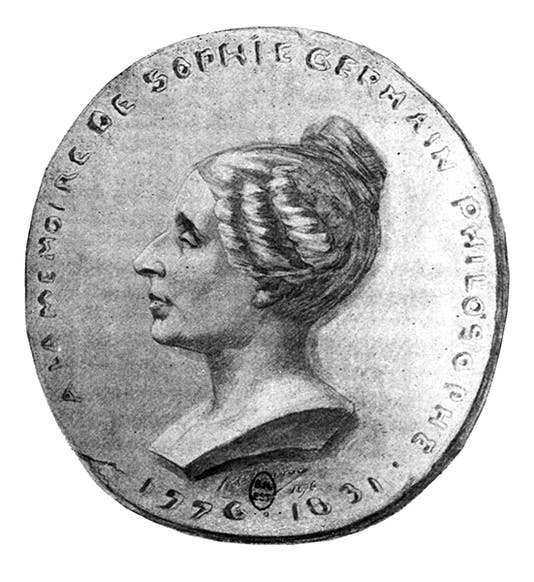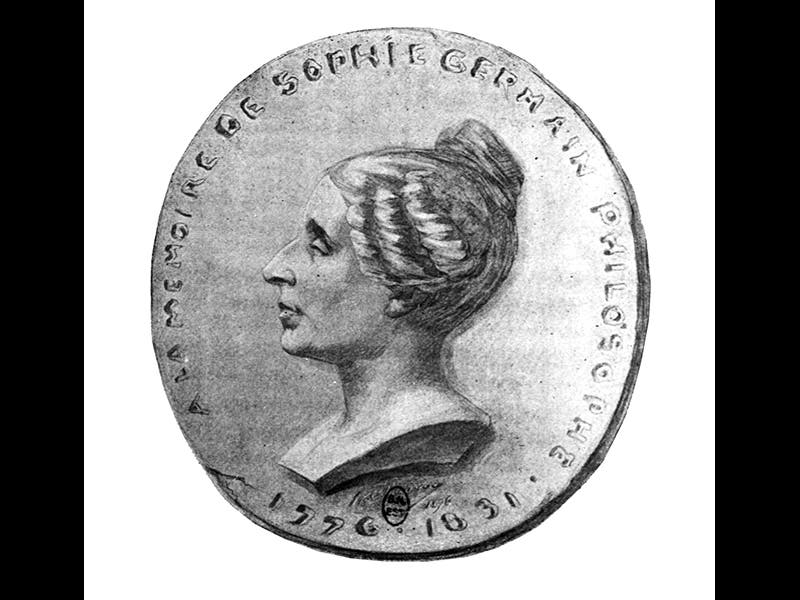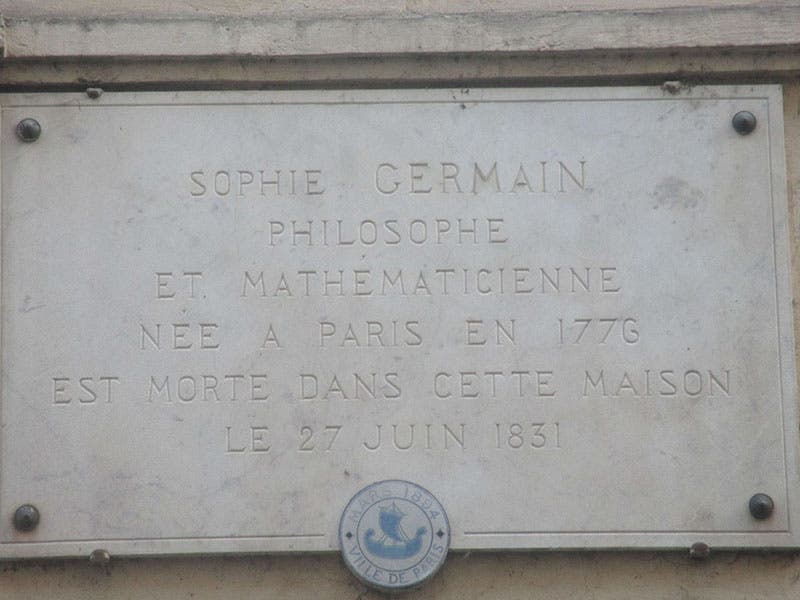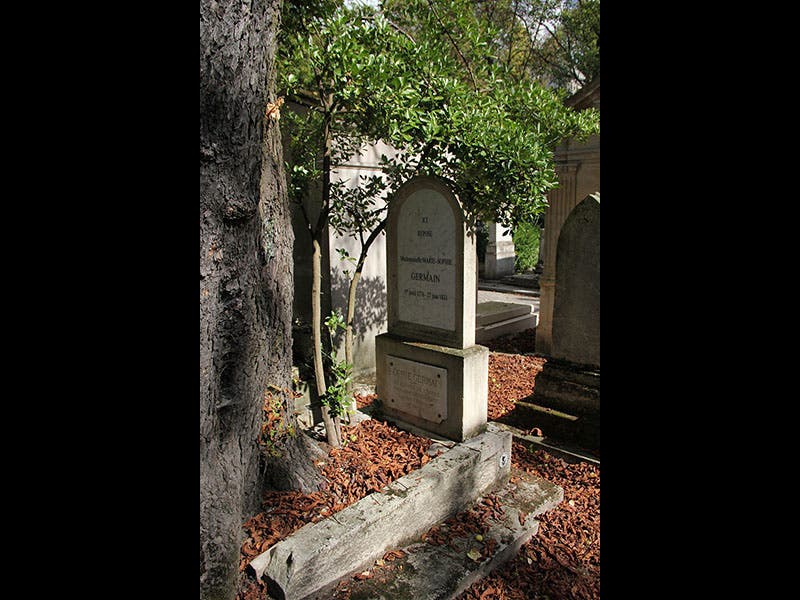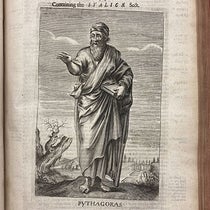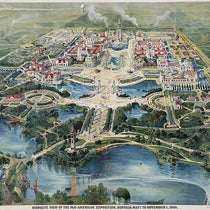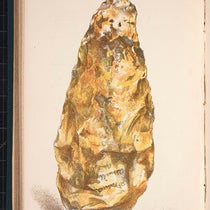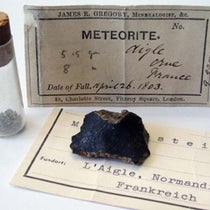Scientist of the Day - Sophie Germain
Marie-Sophie Germain, a French mathematician, was born Apr. 1, 1776. At a time when women were not allowed access to universities and professional academies, Sophie taught herself mathematics in her father's library and thus rode out the French revolution. She later began corresponding with the leading mathematicians of her day, such as Joseph Lagrange and Carl Gauss, using the neutral nom de plume of M. LeBlanc, and both Lagrange and Gauss recognized LeBlanc's genius, and were quite surprised (and, I am happy to say, delighted) when her gender was finally revealed. Germain is best known for her work on Fermat's Last Theorem, and for developing a mathematical theory of elasticity. The work on elasticity was submitted as an entry in a contest sponsored by the Paris Academy of Sciences, and in 1816, she was awarded the prize, the first woman ever to win such an award. The work was published in 1821 (second image).
One would think that taking into account the elastic properties of metals would be a vital component of designing large structures such as the Eiffel Tower, so many people were perturbed, and continue to be perturbed, that Germain's name was not included among the 72 French scientists whose names were inscribed on the Eiffel Tower. But then, there were no women at all among the 72 on the Tower list. Even in 1889, the opportunities and rewards for women in science were very few. And even today, Germain is commemorated only by a memorial medal (first image), a street and a school in Paris, a plaque on the house where she lived (third image), and a headstone in the Pere Lachaise cemetery where she is buried (fourth image). She deserves to be more widely known.
Dr. William B. Ashworth, Jr., Consultant for the History of Science, Linda Hall Library and Associate Professor, Department of History, University of Missouri-Kansas City. Comments or corrections are welcome; please direct to ashworthw@umkc.edu.

